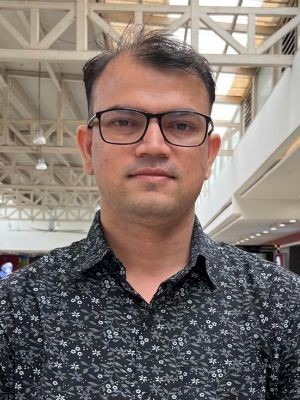Room 209, School of Arts and Sciences
Central Campus

The Earth’s atmosphere is influenced by diverse natural and anthropogenic processes, including emissions, photochemistry, and dynamics. Due to such complexities, it is extremely challenging to design policies for mitigation of air pollution and climate change. The relative contributions of human activities versus natural processes are particularly poorly understood in developing regions, such as South Asia. The uncertainty stems from sparse observations, uncertain emissions, and limited ability of models to resolve complex topography. To address these gaps, we incorporated recent observations from multiple platforms—ground-based stations, balloons, ships, aircraft, and satellites—alongside comprehensive modeling. Our simulations successfully replicated the secondary ozone peaks over the Himalayas and the widespread winter haze across the Indo-Gangetic Plain. The observed peaks over the Himalayas are found to be inter-continental transport of natural stratospheric ozone. While biomass-burning emissions worsen air quality during post-monsoon, these have limited effect in winter, when haze problem is most severe. These findings unravel a larger role of atmospheric dynamics in enhancing climate-forcing pollution over South Asia, than previously thought.
Narendra Ojha earned his Master's degree in Physics from the University of Allahabad in 2007. During his PhD at ARIES, Nainital (2007-2013), he conducted balloon- and ground-based experiments for atmospheric observations over the Himalayas and the Indo-Gangetic Plain region. He later expanded his expertise in atmospheric modeling for South Asia and Europe during his post-doctoral tenure at the Max Planck Institute for Chemistry, Germany. Since 2018, Dr. Ojha has been serving as a faculty member at the Physical Research Laboratory (PRL) in Ahmedabad. His current research focus is on quantifying different sources of tropospheric ozone and aerosols to inform mitigation policies. Besides high-resolution chemistry-climate modeling, his group also applies advance AI/ML tools for simulations. He has authored/co-authored over sixty peer-reviewed publications and several book chapters. In recognition of his significant contributions, he was awarded the prestigious International Centre for Theoretical Physics (ICTP) Prize in 2021.